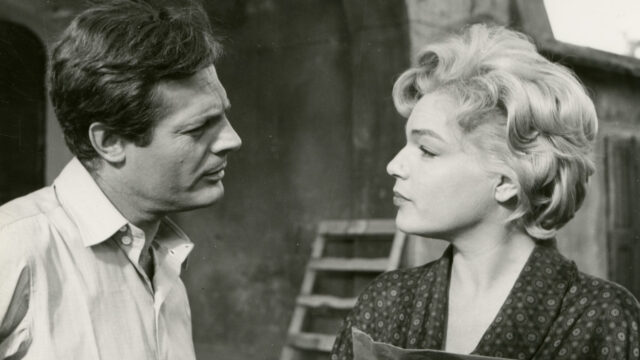The post Monday Movie: Adua and Her Friends, by David Bax appeared first on Battleship Pretension.

Every Monday, we’ll highlight a piece of writing from our vaults. This review of Adua and Her Friends originally ran as a home video review.
Antonio Pietrangeli’s Adua and Her Friends (out now on Blu-ray from Kino Lorber’s Raro Video imprint) is exactly the kind of odd, sweet, distinctive movie ripe for rediscovery on home video. This high-concept comic melodrama is a female buddy movie, a social-issue drama, a sex comedy and plenty of other genres crammed into a film that somehow finds a way to make it all work.
When one of Rome’s high-end brothels closes up shop for good, Adua and three of her fellow former employees decide to go into the business for themselves. With backing from a local gangster, they buy a place just outside of town (it happens to be next door to a seminary) with dreams of turning it into the best little whorehouse in Italy. But their underworld benefactor advises them to first run it simply as a restaurant for a couple months in order to establish legitimacy among the neighbors and the authorities. As the weeks go on, Adua and company find that not only do they enjoy self-employment and their newfound sense of strength and agency, but also that they’re pretty damn good at managing a restaurant. Of course, they didn’t get a loan from a mobster just to make gnocchi. Enter the film’s major conflict.
One of the treats awaiting those who pick up this Blu-ray is the movie’s all-star cast. Adua will be recognizable as actress Simone Signoret to fans of Diablolique and her caddish beau is none other than Marcello Mastroianni. Meanwhile, Miralina, who starts as the most obstinate of the group before being touchingly opened up by her new life in a new place, is played by Emmanuelle Riva, Oscar-nominated for Michael Haneke’s Amour just a couple of years ago.
Pietrangeli and cinematographer Armando Nannuzzi capture the story in wide shots that are sunny and low on contrast. In employing the presentation methods of an innocuous comedy, Pietrangeli normalizes these women and their lives, reducing any impulse the viewer may have to judge them or view them at a distance.
These aesthetic choices, in tandem with the warm performances, also make Adua and Her Friends plain old fun. Though Pietrangeli is dramatizing the slow break from conditioning these women undergo, he also finds pure joy in the common fantasy of going into business for yourself.



